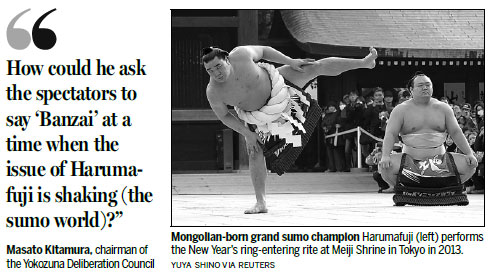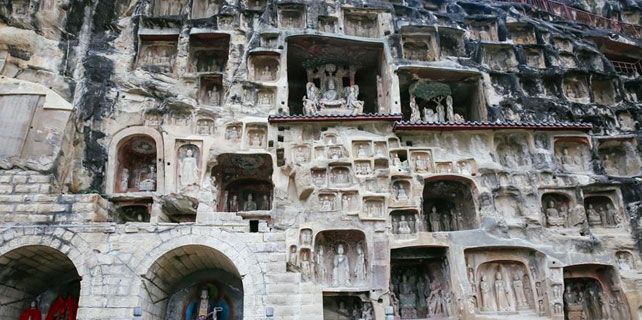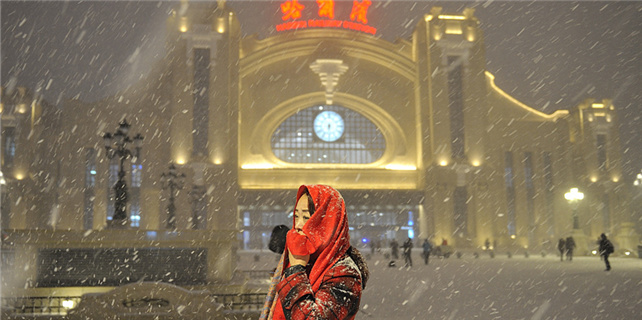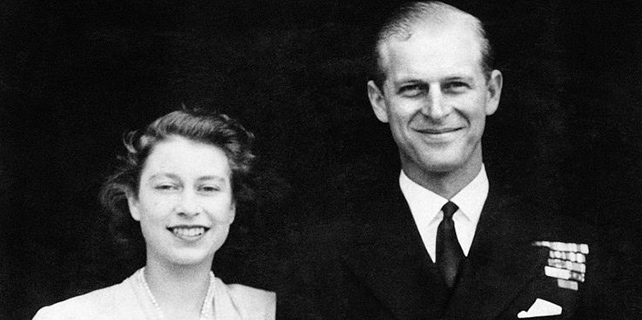Japan's Sumo council calls for 'harsh punishment' for champion wrestler
TOKYO - The Yokozuna Deliberation Council has asked the Japan Sumo Association to hand out an "extremely harsh punishment" to "yokozuna" (grand champion) Harumafuji for an alleged assault on a junior wrestler, Kyodo News agency reported on Monday.
The chairman of the advisory body, which makes recommendations to the JSA over the promotion of grand champions in sumo's elite division also criticized fellow yokozuna Hakuho, who publicly called for Harumafuji to return to the ring.
Harumafuji apologized this month after media reported that he had pounded junior wrestler Takanoiwa with his bare fists and with a beer bottle while drinking at a restaurant-bar with other wrestlers last month.
Takanoiwa did not take part in the Kyushu Grand Sumo Tournament due to a fracture, concussion and other injuries, according to the JSA. Harumafuji withdrew early in the competition after reports of the assault emerged.

"Tremendous damage has been caused (to sumo). It let fans down," Masato Kitamura, chairman of the Yokozuna Deliberation Council, was quoted as saying by Kyodo on Monday.
Police are investigating the incident after former grand champion Takanohana, who is Takanoiwa's coach and stable master, filed a complaint.
Hakuho, who won his 40th career title at the tournament, told fans on Sunday that he wanted both his fellow Mongolians Harumafuji and Takanoiwa to return to the sport. He urged fans to shout "Banzai!" together in support of both wrestlers, Kyodo said.
"How could he ask the spectators to say 'Banzai' at a time when the issue of Harumafuji is shaking (the sumo world)?" Kitamura said.
Disciplinary options
The JSA has several disciplinary options with regard to Harumafuji, including dismissal, recommending the yokozuna retire or suspending him from tournaments.
The origins of sumo, in which giant wrestlers clad in loincloths seek to topple or push their opponents out of the ring, stretch back centuries and its traditions have links to Japan's Shinto religion. The sport has struggled with violence before.
A former stable master was sentenced to five years in prison in 2010 after a court found he had ordered wrestlers three years earlier to beat a 17-year-old trainee who had tried to run away from the gym. The trainee died from his injuries.
The fiery Mongolian yokozuna Asashoryu quit the sport the same year after a probe into reports of a drunken scuffle in Tokyo.
Reuters
(China Daily 11/29/2017 page11)









